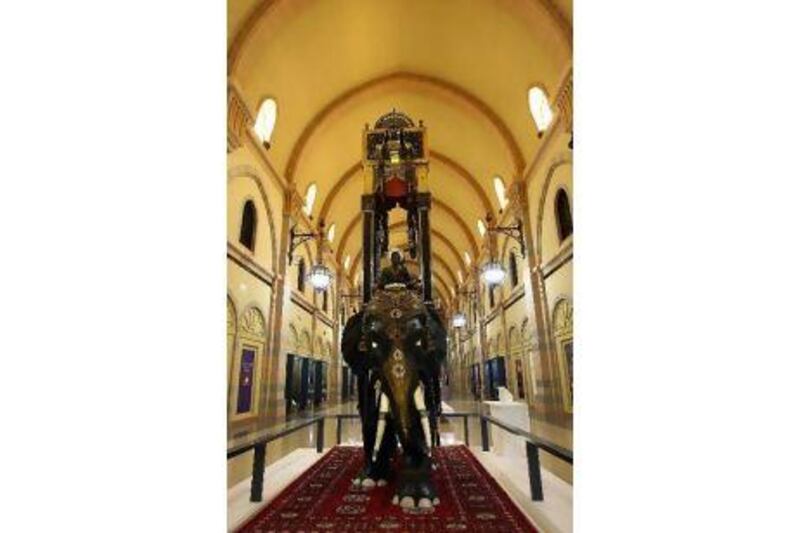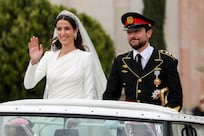SHARJAH // In 953 AD, when the Sultan of Egypt demanded a pen that would not stain his clothes, the world's first fountain pen was invented and then presented to him.
The number zero, the decimal point in arithmetic, algebra, tools that measure celestial bodies, breakthroughs in medicine such as the treatment of cataracts and glaucoma, and the world's first biological weapons are a sample of the wealthy legacy of the Islamic civilisation and its greatest minds.
In the spirit of Ramadan, the Sharjah Museum of Islamic Civilisation invites visitors to come for free and "seek knowledge" through its impressive 5,000 masterpieces on the history, culture and art of the Muslim world.
The Prophet Mohammed said: "Seek knowledge even as far as China, for the pursuit of knowledge is the duty of every individual Muslim."
A stroll through the science and innovation gallery of the museum, particularly by anyone who is fasting, will help gain insight into how timings of the prayers, the direction of the Qibla of Mecca, and the shape of the moon were all measured by their Muslim ancestors.
The questions to Islam's various timekeeping challenges were solved through trigonometry. Six of the world's modern trigonometric functions, such as tangent and cotangent, owe their origin and Arabic names to Muslim scholars.
"One of the most rewarding ways of suppressing the hunger of the stomach is to feed the mind and soul by seeking knowledge and understanding," said Aisha Deemas, 27, the museum's curator.
"People should take the opportunity in Ramadan to learn about the Islamic civilisation, and how it is not just our past accomplishments but about now and in the future," she said.
The story of Islam and its people can be discovered through the museum's six halls. One is dedicated to faith and the more spiritual aspect of Islam. It includes a copy of Uthman ibn Affan's Quran, the third caliph of Muslims, 644-656 AD, in Kufic script, on parchment. It gives the world a glimpse into how the first Quran looked when it was made into a book form.
Another hall of the museum is dedicated to science and innovation, with the last four touching upon every aspect of Muslim life as it evolved through the ages.
In the science hall, Ms Deemas points out the intricate workings of the "astrolabe", a measuring tool described by the Greeks but perfected by the Muslims. It helped establish the time of the day and night, measured the movements of the stars, and determined directions during travels. "Regardless of what the object was for, its creators would put great effort in its design and detail," Ms Deemas said.
The early biological weapons were only intended to be thrown and broken near an enemy. Yet the circular grenades made of pottery, with live poisonous creatures inside - including snakes or scorpions - would have intricate floral designs drawn on their surfaces.
"Islam touches every aspect of one's life," she said.
How the religion influenced domestic life is captured through the incense burners, perfume bottles, dishes, jars, and pillow cases that would be adorned with calligraphy - often a verse of blessing from the Quran - along with other designs.
Clothing, including slippers, and accessories such as jewellery, were of different designs, depending on the Islamic period and the various influences of nearby cultures.
At the same time, the often neglected "entertainment" aspect of a Muslim's life was captured through musical instruments such as the kemanche, a stringed instrument often made of tortoise shell.
Even tea, especially black tea accompanied often by milk, which is always present at every iftar, spread through Iran to the rest of the Muslim world. From inventions, to poetry, to art, there is a lot to learn at the museum about Islam, and the many ways it has shaped how Muslims celebrate important seasons and rituals.
The Sharjah Museum of Islamic Civilisation can be reached at 971 6 5655455 or visit www.islamicmuseum.ae/. Admission is free throughout Ramadan, 9am to 2pm, then from 9pm to 11pm every day except Friday, when it is open 9am to 11am.






